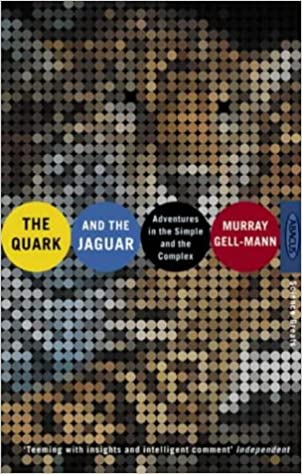
|
Murray Gell-MannThe Quark and the Jaguar146 |
If the interference between each pair of coarse-grained histories is zero...
If the interference between each pair of coarse grained histories is zero, either exactly or to an exceedingly good approximation, then all the coarse grained histories are said to decohere. The quantity $D$ of each coarse-grained history and itself is then a true probability, with the additive property. In practice, quantum mechanics is always applied to sets of decohering coarse-grained histories, and that is why it is able to predict probabilities. ($D$, by the way, is called the decoherence functional; the wod “functional” indicates that it depends on histories.)